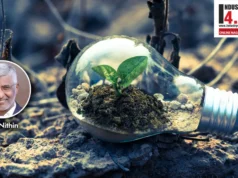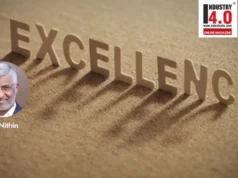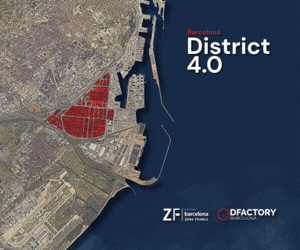As we write this, the banks have put in a request to the Reserve Bank of India, not to extend the moratorium. They state that this could lead to an increase in bad loans and strain the lenders even more. The bank feels that whether it’s individuals or industries, they are taking advantage under moratorium and deferring payments. Suppose the data is to be believed, that almost 50 % of the total banking sector loans were under moratorium. Many argue this would weaken the bank and increase their Non-Performing Assets from 12.05 % in March this year, to 14.7 % in 2021.
So, what does the MSMSE have to say about this development? “We are taught to be prepared for economic slowdown and not economic shutdown. We are talking about survival here and not a dip in the profits,” says R.Ramamurthy, President of CODISSIA.
That’s a reality check summarised in a statement. CODISSIA had turned 50 last year, and in their golden jubilee year, they have been made to fight the steepest challenge ever. Economic Shutdown! As an organisation that genuinely represents manufacturing, they are forced to think of desperate measures at very desperate times.
Let’s visit some facts and concern points that we have on record.
- Right now, 70 % of the MSME has been affected. The numbers show that there are 63.8 Million MSME Enterprises in various industries, employing close to 111 million people. Out of which 14 % are women-led organisation. 11.7 % of registered MSME units are in Tamil Nadu.
- MSME sector accounts for 31 % of India’s GDP & 48 % of exports. That will be hit more, if the moratorium is not extended. Almost tough access to finance, almost non-existence of smart capital has added to the woes of MSME’s financial fragility.
- Orders have been cancelled, and this has, in turn, affected the utilisation of factory capacity, which is currently under-utilised.
- Now, as the money dries up, there will be constraints on working capital, which will result in non-payment of Term Loans, Wages and Statutory Obligations.
- Banks are currently offering 20 % additional equity, but they place a rider that we may need to close a past loan. As an MSME, do I go for the excess capital, when I am not sure if the demand will come back?
- Post Moratorium period coming to an end, the banks are expected to charge a very high-interest rate. This could eliminate the smaller MSME’s, months before the year comes to an end.
The paramount number of challenges can only be added to the last point, even with Post COVID 19 recovery. “Post Covid-19 rebound is an incorrect way to look at the future. We need to live with Covid-19 ripples, even if the vaccine comes around. The demand will not be the same. MSME need demand to survive”, says M.V Ramesh Babu, Vice President, CODISSIA.
So MSME with their respective representation, including CODISSIA, had written to the establishments, for specific help. We have picked a few which if worked out; it will provide urgent critical relief.
- Exempt all MSME’s from statutory dues like EPF, ESI, GST, Income tax etc., in addition to and the interest charged on statutory dues for the year 2020, at least till November this year.
- Extending, GST filing return date to March 2021 along with permitting to pay the GST arrears in instalment.
- Micro industries should get a loan at 4 %. Any percentage higher than that will only hit their negative profits.
- Waiver of interest on all loans and cash credits for MSME’s for another 6 months. Banks have the money, and this is where the banks can power back the MSME to recovery.
- NBFC account for only 3 % of loans given to MSME, if their loan servicing increase to MSME, it could help the MSME survive the crisis.
- Economic ways of transportation, as some MSME’s were in conversation with the Indian railways to seek that assistance. Transportation occupies up to one-fourth of the cost.
What was notable in the fight against the pandemic, as the experts were worried that the virus would be a breeding ground in the MSME sector. That has not happened as the MSME have come together to arrest the spread of the virus. Now the fight against the virus will drastically increase the cost.
During a pandemic, we got to look at the wise counsel. As we mentioned earlier in the article “Desperate Times Means Desperate Measures”. There was one idea that is being mounted by a respected strategic counsel Srinath Sridharan. That idea if worked out well could just be shot in the arm of MSME. He says “Convert GST-Credits into Fresh-Credit”. He further states “GST-credits can be securitised to make it a new source of funding for the industry, with it being an additional revenue source for the banks; parallely, it may also generate more liquidity for the government in the months to follow. It can reduce the immediate burden on the government to infuse this liquidity in the economy and can be rolled out immediately.”
Well, it’s all about survival now. Time to STAND-UP, With the MSME.










